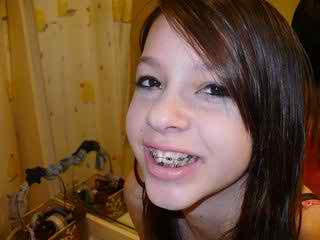My Child Just Got Braces – What Do I Do Now?
What You Should Know About Children and Braces
While children used to be teased, ridiculed, and called names for wearing braces, having wires on your teeth is more accepted today since so many children have to have their teeth corrected. Recent studies have estimated between 50 and 70 percent of all children are or will have to wear braces between the ages of 6 and 18. These children, and even some adults, usually get braces to correct bad bites, also known as a malocclusion in the medical world. This is what you need to know about children and braces.
The jaw and tooth problems that many people face are generally genetic but can also be the result of early or late tooth loss, an injury, or excessive thumb sucking during the adolescent years. Children will usually begin getting braces when all of their adult teeth have grown in, which usually occurs between the ages of 11 and 15 years old – even though this has traditionally been the case, more dental professionals are adopting “early intervention” practices for faster, better results.
While crooked or crowded teeth will often have an impact on a child’s appearance, it can also cause a number of other issues, including how the child speaks, chews, and bites. Additionally, abnormal tooth growth can make the child more prone to developing temporomandibular joint (TMJ) issues and even periodontal disease. Because crooked teeth can cause a slew of other problems, dentists always encourage parents to opt for braces are early as possible to correct the issue right away.
In some cases, the adjustments that a child needs to make when they have braces will affect both the child and the parent. When wearing braces, children should eat a healthy diet to keep their teeth healthy and strong but they should also avoid certain foods such as corn on the cob, seeds, whole apples, popcorn, and sticky candies to help keep the braces intact and avoid any unnecessary damage.
Additionally, parents should encourage their child with braces to follow proper dental health routines and take the extra time to make sure their teeth are clean and braces free of any food debris – since plaque will build up around the braces adhered to the teeth, it is very important to make sure these areas are clean to help prevent cavities and tooth decay. Habits such as chewing on pencils and pens, chewing on ice and other oral damaging oral habits should also be avoided.
If your children need braces, it’s time to visit the dentist! If you don’t have insurance, it may be time to sign up for a New Hampshire family discount dental plan like Wellness Dental Plan. For more information or to sign up, click here.
*Photo Courtesy of Dave Parker via Creative Commons License











